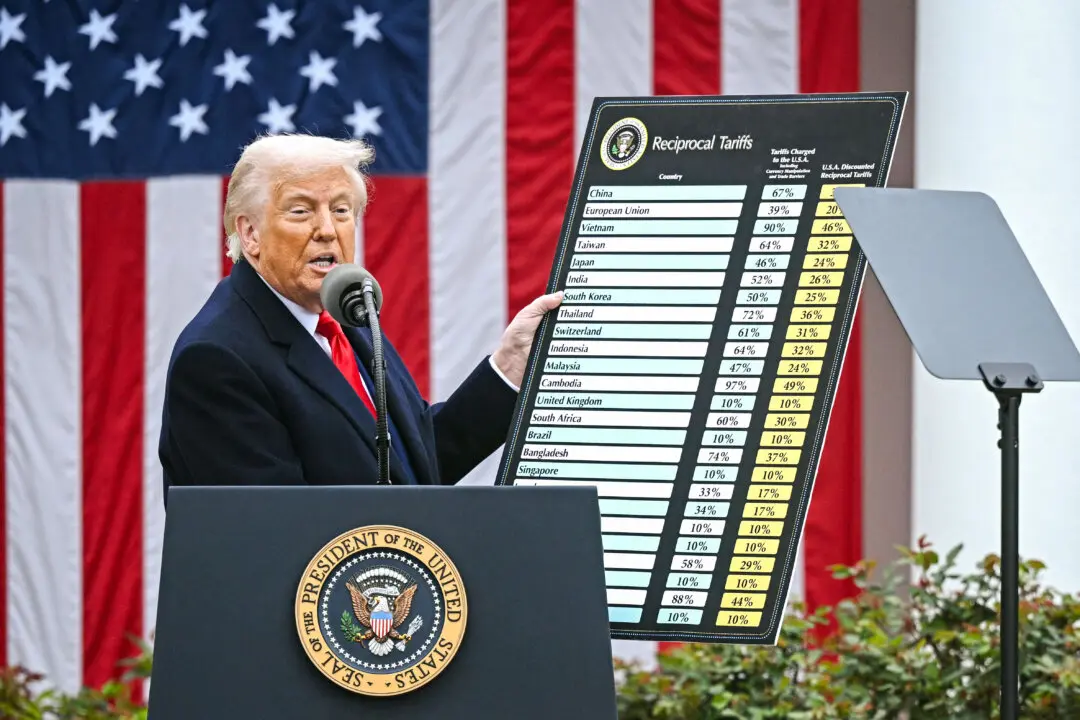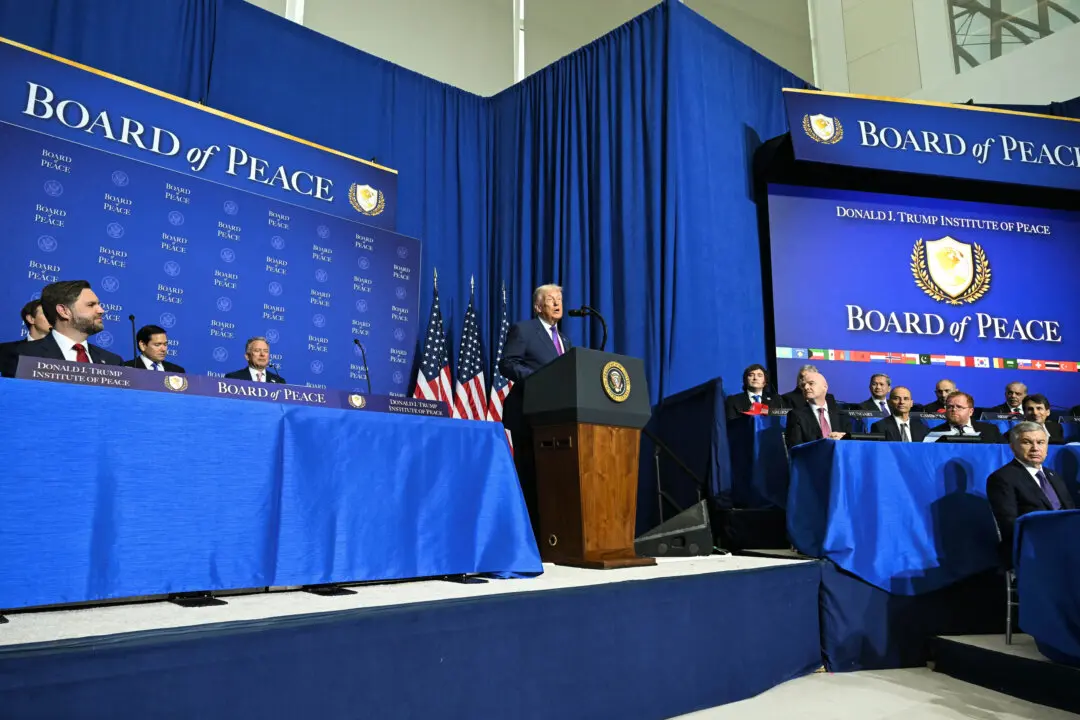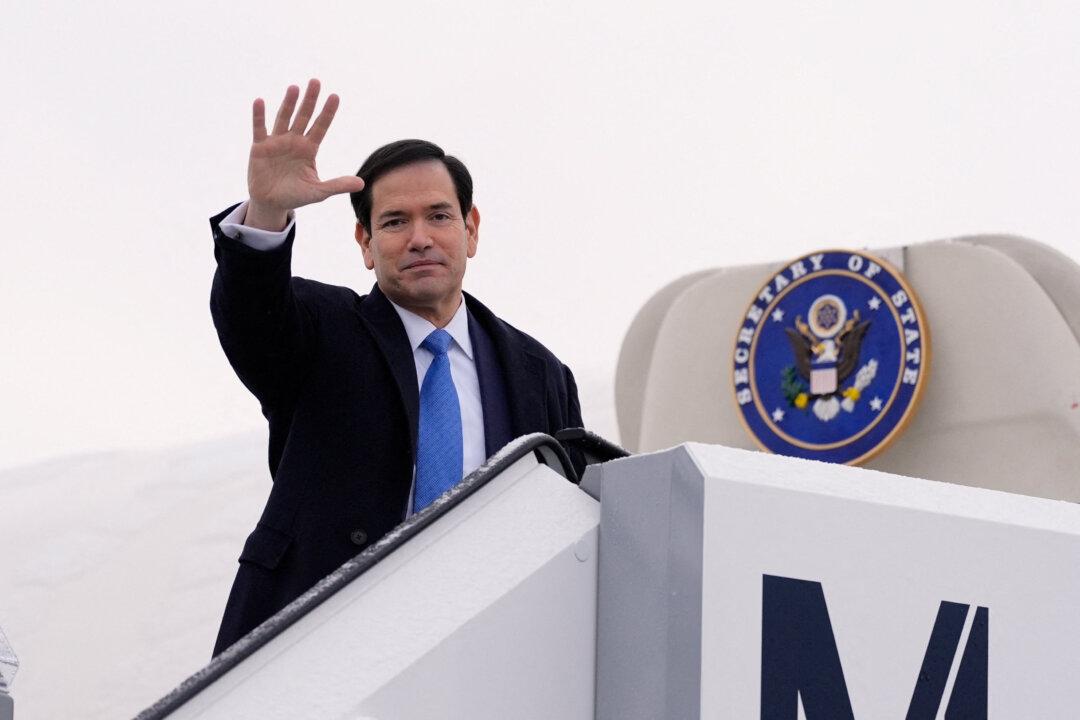WASHINGTON—Equity markets have rallied since the election last year, but tax reform is not yet built into expectations. The passage of a bill to reform the tax system may give markets another boost, according to CEOs of top U.S. financial firms.
“If nothing gets done on the corporate tax, that’ll be a big disappointment,” said James Gorman, chairman and CEO of Morgan Stanley, during a panel discussion at the annual meeting of the Institute of International Finance (IIF) in Washington on Oct. 13.





